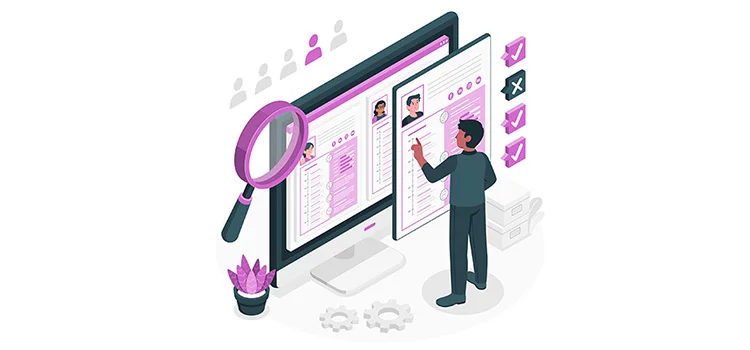Personal Development
Examples of Transferable Skills that Employers are Looking for
Whether you’ve stayed in the same career field for decades or hopped around, you have likely developed many skill sets and added to your repertoire of the existing list of skills. Naturally, not all of these are transferable. In this blog, we’re going to look at 50 examples of transferable skills that employers are looking for. We’re going to tell you how to add them to your CV or resume so that they stay relevant to the job you’re applying for.
We’re also going to tackle the topic of improving transferable skills that will benefit your professional development.
But, just in case, do you have a clear idea concerning what transferable skills are?
Table of Content
- What are Transferable Skills?
- Why Transferable Skills are Important
- Types of Transferable Skills
- How to Improve Transferable Skills
- How to Add Transferable Skills to a Resume
- FAQs
- What transferable skills do employers look for?
- How do you write transferable skills on a CV?
- What are the most important transferable skills?
- Are transferable skills soft skills?
- What’s another name for transferable skills?
- What are core and transferable skills?
- Is reading a transferable skill?
- How are job specific skills different from transferable skills?
- Why do employers seek transferable skills?
- How to highlight transferable skills?
- Transferable skill vs Soft skills
- Conclusions
- What to Read Next:
What are Transferable Skills?
Transferable skills are exactly what they sound like: skills that you can ‘transfer’ between jobs. It doesn’t matter if you’re at an entry-level position or a top-level managerial role; you’ll always need them. Another perk of transferable skills is that they are needed everywhere, regardless of your field.
Suppose you work in the IT department of a bank and one of your colleagues works in the general banking sector. Understandably, your roles and daily routine are vastly different. However, should you ever choose to switch to the general banking department where your colleague works in, your computer networking, coding, troubleshooting and so on skills will seldom come in handy. Instead, what you’ll take with you is skills like problem-solving skills, analytical and communications skills that you apply throughout your life, regardless of the place and time.
That’s what transferable skills are.
Soft Skills versus Hard SkillsHowever, we should also tell you that there are skills that are called hard skills and those that are called soft skills. Skills like coding and data analysis are hard skills, and problem-solving, analytical and communications skills are soft skills. You probably have guessed by now that soft skills are useful most of the time, whereas the usefulness of hard skills depends on the situation. But it’s not that they do not belong to the category of transferable skills. They obviously do. But they are a bit less valuable than your soft skills when it comes to transferring them between roles in a job. As you rise up the ladder in a company, your proficiency in soft skills becomes much more critical. This is especially true if you’re aiming for a top-level managerial position like a Managing Director (MD) or a Chief Executive Officer (CEO), for example. |
They are sort of like tools in a tool belt. The more tools you have at your disposal, the more you can take on and not be stuck because you lack the proper tools.
You can already see how beneficial transferable skills are.

Why Transferable Skills are Important
Whether you’re climbing up the company ladder or switching jobs because you’ve landed a better opportunity elsewhere, transferable skills are one of the major drivers that can affect your future. Most employers don’t care what you did at your previous company, rather what skillset can you transfer from your previous company to the present company. If you work in sales, it doesn’t matter even if you’ve got a PhD in Quantum Theory; your knowledge doesn’t benefit the company in any shape or way. It’s thus understandable if the company sees no value in you. It’s not their fault. You are just in the wrong place.
That’s why transferable skills are highly sought after by hiring managers. They are probably the second thing that they look at after evaluating your work experience.
The more skills you take with you in your job interviews, the more attractive you become to your potential employer. You can also add them to your cover letter. But remember, not every transferable skill is useful to a particular employer. They seek out specific transferable skills more than others. It all depends on their company structure, their goals and their culture.
Sometimes employers look for skills that you might not have thought of including in your CV. That’s why, in interviews, employers tend to dive deep into your experiences as it may reveal that you have far more of the sought after transferable skills than you thought.
Types of Transferable Skills
Before we give you a massive list of transferable skills that employers usually look for, we’re going to categorise them so you know which one you need to focus on more, depending on the industry you’re currently working in.
The major categories of transferable skills that we’ve identified are:
- Organisation, management, and leadership skills
- Research and planning
- Interpersonal skills and human relations
- Effective communication
- Creative thinking skills
- Work survival skills

Problem Solving Course Online
Let’s give you examples of skills that fall under these categories of transferable skills.
-
Organisation, Management and Leadership Skills
Organisational, management and leadership skills are highly desirable in the eyes of most employers. An employee who can effectively lead a team while keeping proper discipline among everyone is a very valuable individual for any company. Many of us know these things already, but the problem is that our execution of these things severely lacks effectiveness.
So, what defines organisation, management, and leadership skills?
- Ability to supervise a team
- Ability to maintain discipline
- Ensuring that tasks are completed and goals are fulfilled
- Having an insight for the loopholes or gaps in management or your own management skills which may lead to a team’s failure
- Taking responsibility
- Ensuring that employees are satisfied while simultaneously keeping the interest of the organisation intact as well
Here are some examples of organisation, management, and leadership skills:
- Originating new ideas
- Having an eye for details and handling them
- Planning, coordinating and executing tasks
- Group management
- Commissioning responsibility to others
- Effective teaching
- Proper coaching and counselling
- Promoting change
- Selling ideas or products
- Decision making
- Managing conflict
- Following through on tasks
- Multitasking
-
Research and Planning
In any industry, a person who can conceptualise future needs and draw a conclusion on them is incredibly valuable. Even if s/he is slightly off, few people can even come close to what actually follows through. Planning becomes relatively easy with such direction.
However, it’s not that this is done without understanding the underlying factors. A person needs to go through the due diligence of proper research before s/he can start visualising the needs.
Here are some associated research and planning skills:
- Predicting the future through strong logic
- The craftsmanship of ideas
- Identifying problems and solving them in the best manner possible
- Identifying alternatives
- Determining appropriate resources
- Collecting information, analysing them and summarising them down to bite size essential pieces
- Setting goals, defining needs and requirements based on the goals
- Developing evaluation strategies to monitor progress
-
Interpersonal Skills and Human Relations
Interpersonal skills enable you to cope well with others. They are essential if you’re going to work in a team. Every organisation is a team of people. If you don’t have interpersonal skills, you’re bound to fail sooner or later. Conflict is a huge part of professional life. If you lack the skills to resolve them properly, you can never work in a team for a considerable length of time.
Examples of interpersonal and human relations can be:
- Knowing how to bond with coworkers and customers (for instance, through customer service) alike
- Being sensitive to others and conveying feelings appropriately
- Actively listening
- Motivating and providing support to those who need it
- Sharing credit of success with your colleagues
- Assigning responsibility to others in a non-offensive way
- Representing your colleagues wherever necessary
- Understanding situations as well as sentiments of others
- Effectively asserting
-
Effective Communication
Nothing new needs to be said regarding the importance of communication skills. It’s a valuable skill that employers require time after time, no matter your field. No matter how easy your role is, if your words get lost in translation, even the slightest amount of work will seem like climbing Everest.
So, what does entail effective communication skills? There are three factors involved here.
- Expressing something like knowledge and idea
- Transmitting it through proper channel
- Interpreting it exactly or at least close to what the sender meant it to be
There are several effective communication skills that you need to have to ensure that the needs of all of the factors described above will be met.
- Speaking skill- keeping a consistent stream of thought while also maintaining tonality and accent in a way so that the listener has no difficulty listening to you
- Writing skill- keeping a piece of writing clear and concise
- Listening skill- giving your utmost attention, and if necessary, taking notes should you need to address them as soon as someone finishes transmitting a message
- Expressing ideas in an effective and convincing manner
- Facilitating group discussion
- Knowing the best practices of providing appropriate feedback
- Persuasion and negotiation
- Perceiving messages conveyed through non-verbal mediums
- Taking impromptu general interviews
-
Creative Thinking Skills
Creative thinking involves your ability to think critically. You also need to be flexible in your way of thinking. Instead of relying on standard practices or existing knowledge, you need to be able to see patterns in a problem and devise your own solution.
Let’s see a few examples of creative thinking skills:
- Cognitive flexibility: Thinking outside the box
- Showing a significant capacity for curiosity
- Conceptualising situations and hypothesising based on it
- Adaptability and imagination
- Making abstract connections
-
Work Survival Skills
The last category that we’re going to talk about are work survival skills. These are also very essential in that they will enable you to “survive work”. For example, no matter how skilful you are, if you are undisciplined yourself, you can never expect your subordinates to cooperate properly. The reason here is that you are not the kind of person who can work as an effective link in a chain.
Examples of work survival skills are:
- Being punctual
- Time management
- Commitment to meeting goals, both short-term and long-term
- Accepting responsibility
- Enforcing policies or established rules
- Keeping both your outlook and your workplace neat and tidy
However, this list, by no means, is limited. There are many more transferable skills that we haven’t mentioned here. There are many examples of technical and transferable skills.
How to Improve Transferable Skills
Improving transferable skills is part of your personal and professional development. Learn new skills as often as possible. If you demonstrate that you’re willing to work on yourself on a constant basis, employers will notice you more than other candidates for sure.
So, what to work on?
First, be self-aware: Find out your personal strengths and weaknesses. One of the best ways to improve yourself is by taking online courses. Lead Academy offers many courses that you can take to improve yourself. Like Communication Skills, Leadership Skills, Time Management Training and Creative and Innovative Problem Solving.
The best thing is that you’ll be awarded with a CPD certificate after you finish the course, which will keep a track record that you’re working on yourself constantly. Since these can be done on your own time, in the comfort of your own place- you can effectively do many of these courses without them having an impact on your work-life balance.
The next step would be to practice. Having theoretical knowledge is fine, but if you don’t apply them to real-life situations, you’ll never get the benefit out of them. If you have a colleague or a friend who you can practice with, that’s even better.
If you can’t find a real-world problem to practice a particular skill, just be imaginative. Think of a scenario where you can apply this skill and then develop the situation.
How to Add Transferable Skills to a Resume
Before you apply for a job in a job search portal, for instance, give a deeper look at the responsibilities that you’ll take on. You’ll usually find them listed in the job description. Look at the key skill that is required from you. This will provide you with a good indication of which transferable skills you can add to a resume. Go through a transferable skills checklist and add them accordingly. You’ll often find that some transferable skills in education (assuming you studied in a relevant institution) are already there in your repertoire. If they apply for extracurricular activities (like leading a debating team), don’t forget to list them too.
Suppose a job requires some transferable analytical skills. Before you add all of your analytical skills, take a good look at which ones are transferable. Only add the relevant ones. But, if you add everything under God’s sun, it will look very unprofessional. Only mention the ones that will be useful in the role that you’re applying for.
If you have certificates to show, like the ones from CPD that I just mentioned, mention them in your CV so the employer is aware of it. You can be sure that employers will notice it and take it positively.
FAQs
What transferable skills do employers look for?
Transferable skills employers look for are-
- The organisation, management, and leadership skills
- Research and planning
- Interpersonal skills and human relations
- Effective communication
- Creative thinking skills
- Work survival skills
How do you write transferable skills on a CV?
Before writing the transferable skills on a CV you should have a detailed look at the mentioned job description.
What are the most important transferable skills?
There are no “most important transferable skills”. The most important transferable skill is the one that will currently help you the most.
Are transferable skills soft skills?
Not always. Computer literacy is a technical skill that is also called a hard skill, but it is still transferable to most of the roles in an office.
What’s another name for transferable skills?
Transferable skills are sometimes called portable skills. Same thing, same idea, but different name.
What are core and transferable skills?
Core skills represent your core responsibility in an organisation while transferable skills are ones that help you execute your core responsibility as well as other minor ones properly.
Is reading a transferable skill?
Yes, it is.
How are job specific skills different from transferable skills?
Job specific skills are only useful if you switch to a similar job. However, transferable skills can be ported to any role in any field.
Why do employers seek transferable skills?
Most of the time, job seekers find that no two roles are always the same, even when they share the same designation. Even if they have the same title, your responsibilities can vary wildly. This is why, instead of focusing on job-specific skills, employers look for transferable skills that you can bring to their organisation.
How to highlight transferable skills?
Mention them in your CV or resume. But, it’s best if you learn them as a part of your personal development and get a certificate for it which you can show in your CV.
Transferable skill vs Soft skills
All soft skills are transferable skills. However, in most of our career paths, hard skills (skills including computer coding, networking etc) are often transferable as well. Most high-wage roles in today’s world will almost always require decent computer literacy.
Conclusions
In short, transferable skills are essentially flexible skills that you can ‘transfer’ from job to job, role to role. No matter the situation, they’ll always come in handy to you. We’ve given you a massive 50 examples of transferable skills. These are all skills that employers look for in a potential candidate. Make sure that you haven’t kept any gap in your professional life regarding transferable skills. As learning them is just a click away, not having these skills puts a big red flag on your candidacy.
What to Read Next:
- 10 Highest Paying Jobs in the UK 2023
- What is Partnership Working? Why is it Important to Work in Partnership?
- How to be a Hacker – Step by Step Guide
- How To Create A Successful Video Marketing Campaign On LinkedIn
- 20 Jobs to Consider if you have Good Communication Skills – Details and Overview
- How to become a Medical Laboratory Assistant?
- How to be a Good Manager – 15 Tips to be Good Manager













